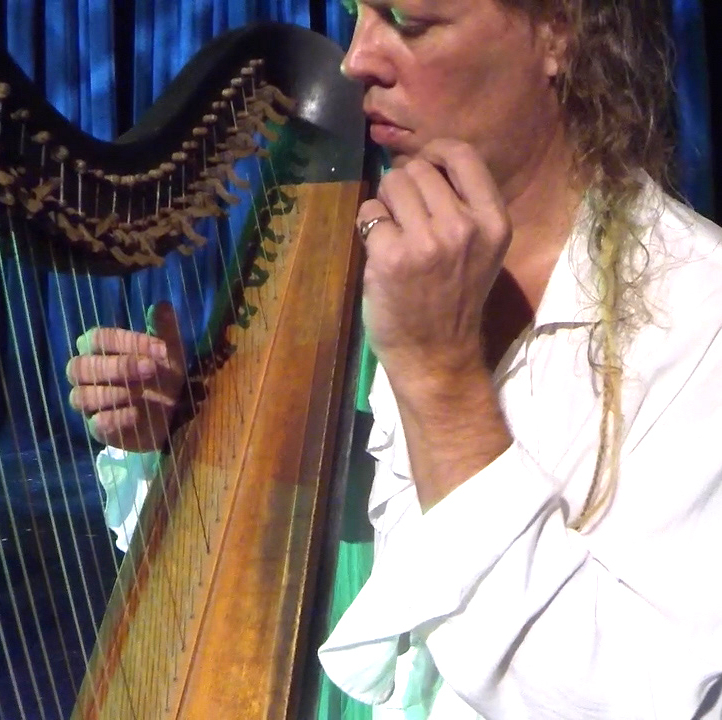About
Music is a celebration of the synthesis between dance form and instrument. I believe that creating and performing music is a magical act.
IRMINSUL is a native of the state of Utah (USA) and has also lived in Colorado, Vermont, Virgina, and New York as well as in Japan and China. Playing piano from the age of six, he was largely self trained - learning his earliest performance pieces by listening to LPs borrowed from the library by a relative. In Junior High School he excelled as accompanist to choirs and madrigal groups, as well as in solo piano. His first performed original piece was an Easter Cantata, written for a local church, at age 16. By his late teens, Irminsul began his experimentation with bands of many genres, inculding prog-rock, punk, heavy metal, early electronic, industrial, hardcore, techno, trance, celtic folk, and world fusion. At age 34, he took up the celtic harp, again self trained, and quickly gained prominence in performing and composing for the instrument. He played with well known Celtic acts such as Idlewild and Stonecircle, recording several albums with both bands. At that time he vigorously played the festival and small concert circuit, and performed on more than one movie soundtrack. Later fusing the harp with his electronic expertise, Irminsul branched out to other music treatments - from dramatic to commissioned works, and began fusing music forms from other cultures and time periods into current projects. Currently, Irminsul divides his time between composing for piano and strings, performing his story/song shows, and perhaps his most important endeavor - pending time with his beautiful wife, Patti, their two cats, and a lanai full of wild birds.

